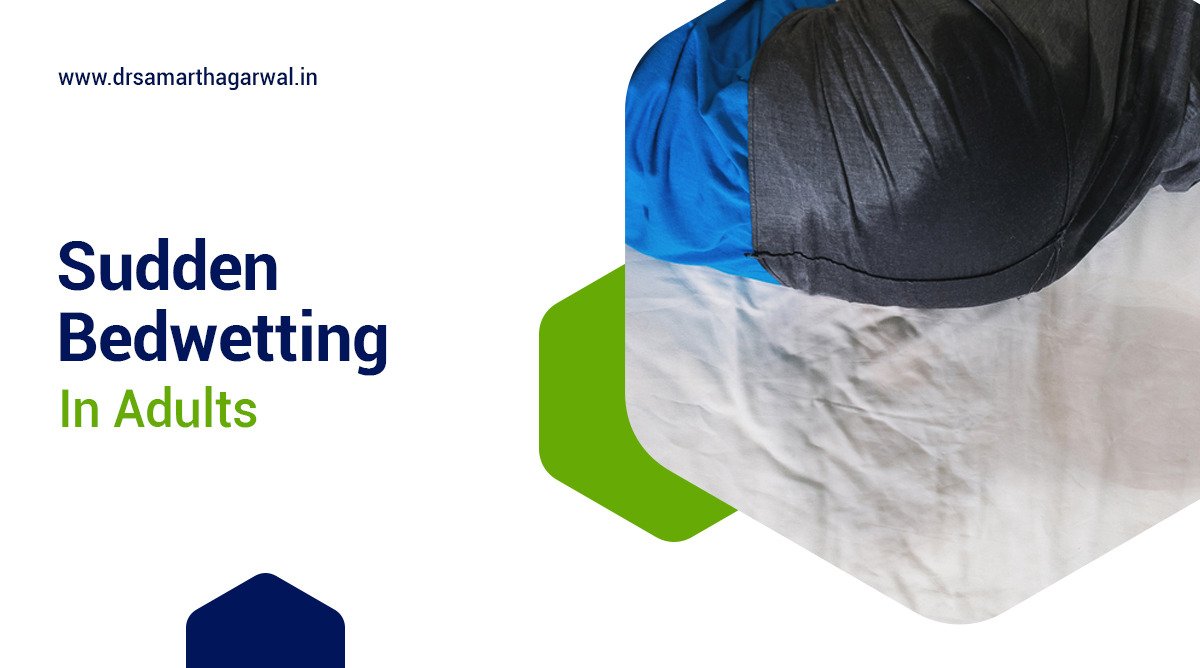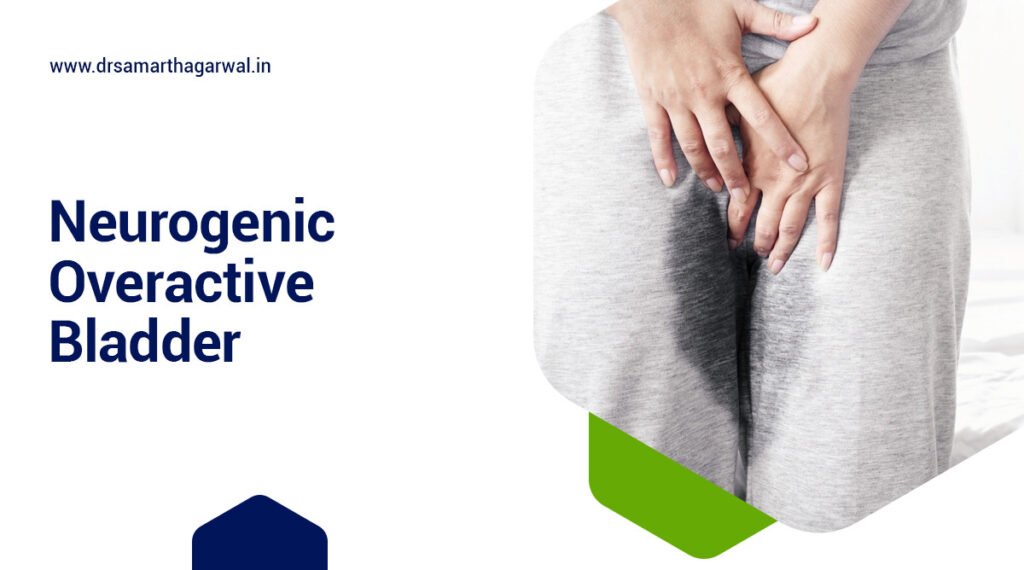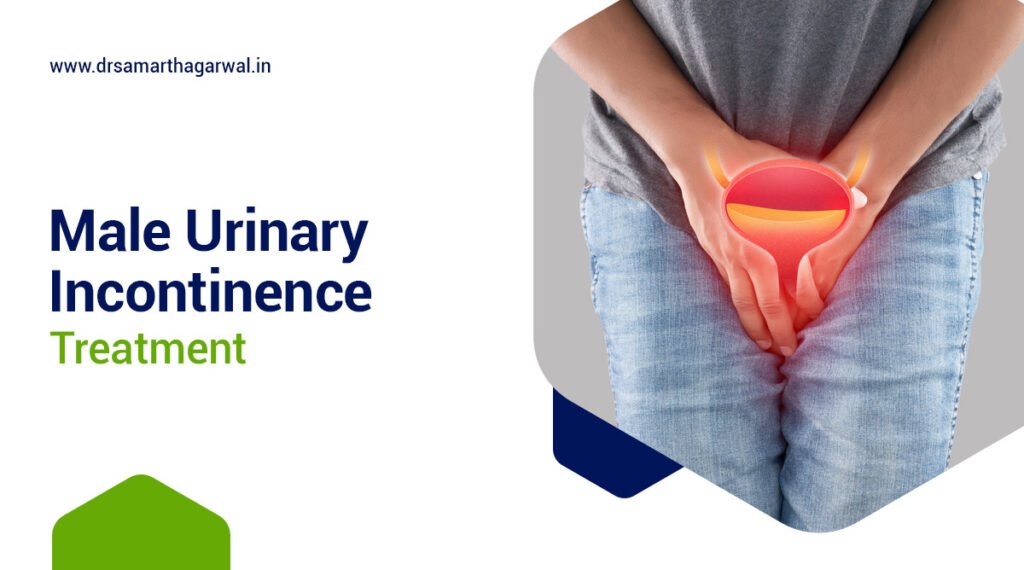Sudden bedwetting, also known as adult nocturnal enuresis, is the involuntary and recurring discharge of urine during sleep that occurs in adults. Adults who experience this often face embarrassment, emotional stress, and disrupted sleep, causing a significant impact on their overall well-being.
Symptoms of adult nocturnal enuresis may include wetting the bed repeatedly for at least a few months without any apparent cause, a large volume of urine, and sometimes involuntary urination during the day as well.
The reasons for this condition can be complex, including conditions such as diabetes, urinary tract infections, neurological problems, and sleep disorders. Additionally, consumption of alcohol, caffeine, and certain medications can also contribute to the symptoms.
Treatment options can vary depending on the underlying cause, age, and severity of the symptoms. According to a study by K Sakamoto in 2001 [1], the most common treatment approach includes behavioral techniques, medications, and surgery. Behavioral interventions may include bladder-training exercises, double voiding techniques, and fluid restriction before bedtime. Medications such as anticholinergics and desmopressin may also be prescribed in some cases. In severe and persistent cases, surgery may be an option to correct any blockages in the urinary tract.
You might also like: Understanding Overactive Bladder OAB Symptoms: What You Need to Know
What is adult bed wetting?
Adult bed wetting, also known as nocturnal enuresis, is the involuntary release of urine during sleep. It is a condition that affects a significant number of adults worldwide, although the exact prevalence is unknown due to the stigma and embarrassment associated with the condition.
Nocturnal enuresis, also known as bedwetting, is a condition that affects approximately 2% to 3% of adults worldwide. The symptoms are characterized by the involuntary release of urine during sleep, typically occurring in children but can persist into adulthood. Treatment options for nocturnal enuresis in adults are varied and dependent on the underlying causes and individual circumstances.
What Are the Causes of Bedwetting in Adults?
Discover the underlying causes of bedwetting in adults, a common and often embarrassing condition that affects millions of people worldwide. From medical conditions like urinary tract infections and neurological disorders to psychological factors like anxiety and insomnia. The list reveals the complex and varied causes of adult bedwetting, helping you better understand the root of the problem and seek effective treatment.
Most Common Causes of Adult Bedwetting are:
- A blockage (obstruction) in part of the urinary tract, such as from a bladder stone or kidney stone.
- Bladder problems, such as small capacity or overactive nerves.
- Diabetes.
- Enlarged prostate.
- Medication side effect.
- Neurological disorders.
- Obstructive sleep apnea.
- Urinary tract infection.
Here are some more reasons for adult bedwetting!
Underlying Medical Conditions:
- Sickle cell disease.
- Neurological changes.
- Kidney or bladder structural issues.
Anxiety and Insomnia:
- There is a large positive correlation between anxiety and depression.
- Both anxiety and depression can contribute to adult bedwetting.
Constipation and Pelvic Organ Prolapse:
- Constipation can cause trouble holding urine.
- Pelvic organ prolapse can also lead to adult bedwetting.
Urinary Tract Infection (UTI):
- A UTI can cause frequent and unexpected urination.
- A UTI often causes inflammation and infection in the urinary tract.
Overactive Bladder:
- Overactive bladder can lead to adult bedwetting.
- This condition causes the bladder muscle to contract involuntarily, leading to sudden urges to urinate.
Neurological Disorders:
- Neurological disorders, such as being post-stroke, can cause adult bedwetting.
- These disorders can affect the nerves that control bladder function.
Sleep Apnea:
- Obstructive sleep apnea can cause adult bedwetting.
- This condition causes pauses in breathing during sleep, which can disrupt bladder function.
Hormonal Imbalances:
- Hormonal imbalances can cause some people to experience bedwetting.
- Antidiuretic hormone (ADH) helps regulate urine production, and imbalances can lead to bedwetting.
Stress and Emotional Factors:
- Stressful events in a person’s life can trigger adult bedwetting.
- Examples of stressful events include conflict at home or school, moving to a new home, or the birth of a sibling.
Note: The causes of adult bedwetting are complex and varied, and this list is not exhaustive. It is essential to consult a healthcare professional to determine the underlying cause of adult bedwetting and develop an appropriate treatment plan.
Nocturnal Enuresis Treatment in Adults
Adults with nocturnal enuresis can be treated with a combination of behavioral therapy, medications, and alternative approaches.
Treatment for nocturnal enuresis in adults may include:
- Behavioral Therapy: Altering habits and behavior patterns, such as establishing a consistent bedtime routine, practicing relaxation techniques, and creating a bedwetting-free zone, can help reduce the frequency of enuresis.
- Medications: Anticholinergic drugs can calm irritated or overactive bladder muscles, while desmopressin (a medication that mimics ADH) can help reduce urine production during the night. Additionally, beta-3 adrenergic receptor agonists have been shown to increase nocturnal bladder capacity.
- Acupuncture: This ancient practice involves inserting thin needles into specific points on the body to stimulate the nerves. Studies suggest that acupuncture can be effective in treating nocturnal enuresis, particularly when combined with behavioral therapy.
- Psychotherapy: Stress, anxiety, and depression are common underlying factors that can contribute to nocturnal enuresis. Counseling or psychotherapy can help address these issues and promote overall mental health and well-being.
- Other Approaches: In addition to the above methods, some researchers have explored alternative therapies, such as mindfulness-based therapies and pelvic floor exercises, which can help strengthen the pelvic muscles and reduce symptoms of nocturnal enuresis.
Assessment and Diagnosis: Diagnosing nocturnal enuresis requires a thorough evaluation of the patient’s symptoms, medical history, and physical examination. Imaging studies, such as ultrasound or magnetic resonance imaging (MRI), may also be necessary to rule out underlying bladder or urinary tract disorders.
Treatment Outcomes: While nocturnal enuresis treatment outcomes can vary depending on the underlying causes and individual response, the majority of adults with nocturnal enuresis can experience significant symptom improvement or remission with a combination of behavioral therapy, medications, and alternative approaches. Regular follow-up appointments with healthcare providers can help monitor treatment progress and make any necessary adjustments.
FAQ
Should I Be Concerned if I Wet the Bed Once?
If you wet the bed once, it’s generally not a cause for concern, as it’s usually unrelated to a medical problem. However, frequent instances may indicate a health issue. For persistent bed-wetting, it’s recommended to consult a doctor or urologist to investigate underlying causes and potential treatment options.
Can Stress Cause Bedwetting in Adults?
Yes, emotional stress caused by disruptions in your normal routine (such as moving to a new home), traumatic events (e.g. death of a loved one, sexual abuse) or ongoing stress/anxiety about a situation may trigger episodes of bedwetting in adults and can last long after the stressful incident is over. Stress can, in some cases, lead to repeated bedwetting incidents which may persist over prolonged periods.
Is Occasional Bedwetting Normal?
For children, occasional bedwetting is common up to ages 7 and 12, with estimates suggesting that around 20% of children have some problems at 5 years old and up to 10% at 7. In late teen years, the estimated rate is between 1% and 3%. In adults, there can be occasional “accidents”, but persistent bedwetting calls for medical evaluation.
Why Did I Pee the Bed Randomly Once?
You may have experienced a case of secondary enuresis, a condition of bed-wetting in adulthood, caused possibly by a blockage in the urinary tract, bladder problems like small capacity or overactive nerves, or other underlying issues like diabetes, obstructive sleep apnea, or pelvic organ prolapse. It’s crucial to consult a healthcare professional for a medical evaluation to determine the exact cause and receive appropriate treatment.
Are Sudden Bedwetting Episodes Common in Adults While Dreaming?
While occasional bedwetting can occur in adults, episodes related to dreaming are not common. Sudden bedwetting in adults may be a sign of an underlying health condition, such as diabetes, urinary tract infection, or neurological disorders. Such bedwetting is more likely due to a failure in bladder control rather than being induced by dreams.
Can Sudden Bedwetting in Adults Be Related to Diabetes?
Yes, sudden bedwetting in adults can be related to diabetes. Diabetes affects the body’s ability to process glucose, causing increased urine production, which can lead to bedwetting. Type 1 diabetes, in particular, may cause this issue. Nerve damage due to diabetes, known as diabetic neuropathy, can also be a factor. It’s important to consult a healthcare professional for evaluation if adult bedwetting occurs.

Repeated bedwetting can mean something more serious – get your health checked by Dr. Samarth Agarwal at Siliguri






